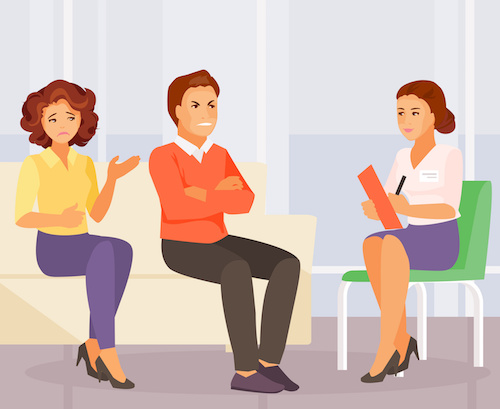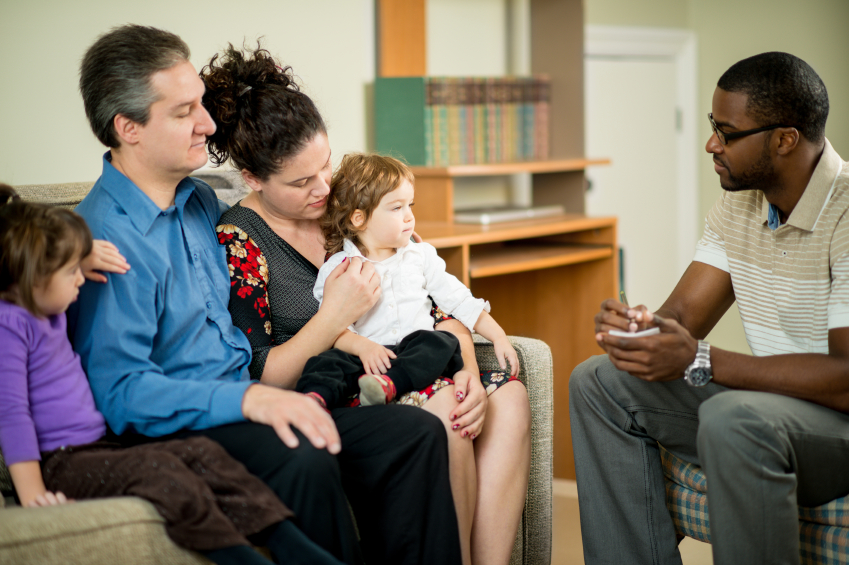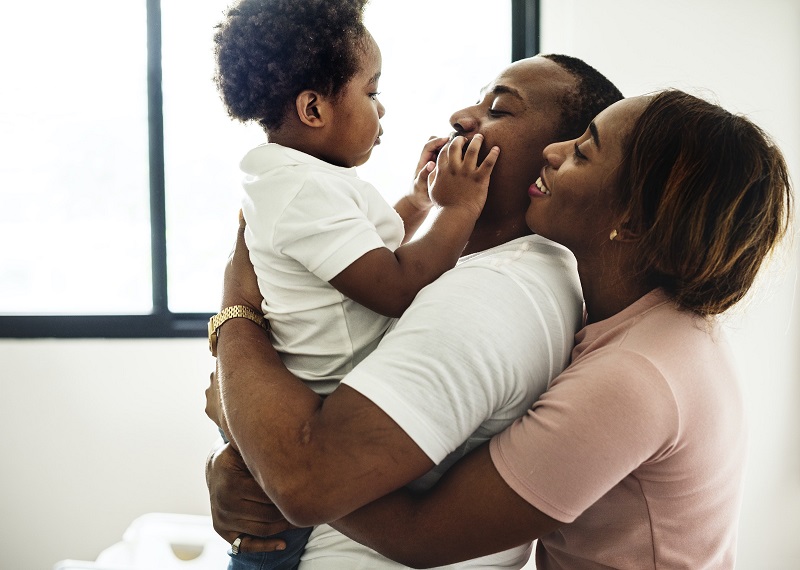Family therapy is a form of counseling that helps families deal with issues that are affecting their relationships. It can be helpful for all types of families, including those who are struggling with communication problems, drug and alcohol abuse, or mental health issues. If you are feeling like your family is falling apart, it might be time to consider family therapy. In this blog post, we will discuss the benefits of family therapy and how it can help you and your loved ones get back on track.
Contents
What Is Family Therapy?
 Family therapy is a type of therapy that is used to help families. The therapist will help the family work through their issues and problems. Family therapy can help families learn how to communicate better, resolve conflicts, and cope with crises.
Family therapy is a type of therapy that is used to help families. The therapist will help the family work through their issues and problems. Family therapy can help families learn how to communicate better, resolve conflicts, and cope with crises.
This type of therapy is a type of psychotherapy that helps families to solve their problems and improve their relationships. Family therapy is an effective treatment for many different types of issues including substance abuse, anger management, depression, anxiety, eating disorders, obsessive-compulsive disorder (OCD), posttraumatic stress disorder (PTSD), etc.
Types of Family Therapy

There are many types of family therapy, including:
Structural Family Therapy
This type is focused on the family system as a whole and looks at how the individual family members interact with each other. It also examines the family’s structure and how it may be contributing to problems. Sometimes this type of therapy is used to help families who are dealing with serious issues, such as addiction or mental illness.
One can see that there are many types of family therapy available to help people and their families.
Cognitive-Behavioral Therapy
This type is designed for the individual who needs help to change his or her behavior. It examines how thoughts affect behaviors, as well as the role those thoughts play in causing problems within a relationship with others.
So one can see that there are many types of family therapy available to help people and their families. It also examines the family’s structure and how it may be contributing to problems. It also examines the family’s structure and how it may be contributing to problems.
Interpersonal Family Therapy
Interpersonal family therapy is designed to help address issues within the family. It focuses on how individuals interact with each other and what can be done to improve their relationships. It also examines how a person’s relationships affect his or her mental health and well-being.
Systems Therapy
This type of family therapy is designed to help families who are struggling with issues such as addiction, substance abuse, or mental illness. It focuses on the entire family unit and looks at ways in which each individual can improve their relationship with others in the family. It also examines how the entire system affects an individual’s behavior and mental health.
Different Techniques of Family Therapy

There are many different approaches to family therapy. Some of these are:
Communication Therapy
There can be some difficulties in communication within a family. This is especially true if there are disagreements or misunderstandings. Communication therapy can help to improve the way that family members talk to each other, share information, and, resolve conflicts.
Narrative Therapy
Sometimes there can be problems or issues within a family that affect everyone. Narrative therapy involves looking at the relationships within the family and how these may be affecting people’s thoughts and behaviors. Through this, it is possible to find ways of making positive changes in order to improve things for all members of the family.
Relationship Counseling
Sometimes there can be problems in a relationship that are affecting the whole family. Relationship counseling aims to help couples or individuals who are having difficulties in their relationships with each other. This can include things like communication problems, issues with trust, and disagreements about common goals for the future.
Psychoeducation
Sometimes, a family member may have mental health issues or learning difficulties. Through psychoeducational is, it possible to help the whole family understand the problems that the person has and how they can be supported. Sometimes this may involve working with professionals to provide information and support to the family.
Role-Playing Games
Role-playing is an exercise where a therapist will have one member of the family act out a situation (such as arguing with another family member) while everyone else watches; then they switch roles so that other people get practice doing it themselves too! It gives them all hands-on experience dealing with common problems before having actual conflicts occur.
What Does Family Therapy Help With?

There are many things that family therapy can help with. Some of the most common reasons to seek family therapy include:
Communication Problems
Sometimes when a family is struggling, it can be difficult to communicate effectively. Family therapy can help improve communication by providing a space for everyone in the family to share their thoughts and feelings. It may also help family members learn how to listen and respond appropriately when someone is upset or angry.
Conflict Resolution
Families often have disagreements and arguments. Family therapy can provide a safe place for these disagreements to happen, without them turning into full-blown fights. This can help reduce stress in the family and improve relationships. It may also help prevent family members from taking their anger and frustrations out on each other outside of therapy.
Parenting Issues
Parents often seek family therapy to get help with parenting issues. Family therapy can provide parents with support, guidance, and advice on how to deal with common parenting challenges. It can also help parents learn how to communicate better with their children.
Support During Crisis
Families sometimes go through difficult times, such as the death of a loved one or a major health crisis. Family therapy can provide support during these tough times. The therapist can offer coping strategies for dealing with the stress of the situation and help the family stay connected to each other. It can also be a place for family members to express their feelings and talk about their experiences.
Makes Families Stronger
Family therapy can be a very powerful tool for improving family relationships. The therapist helps each member of the family learn how to communicate better with one another and work through conflicts in healthy ways. This can make families stronger overall, which may help prevent problems from developing or worsening in the future.
What Happens in Family Therapy?

Family therapy typically involves meeting with a therapist as a family. This therapy can be with a single therapist or as a group. Some family therapists also see different members of the family for individual therapy and then meet with them altogether, to help resolve issues that may not come up during individual sessions.
During the first session, each member of the family will talk about what they think is wrong in the family and how they want things to change. The therapist will listen carefully to everyone’s concerns and then offer suggestions on ways that everyone can work together towards their goals. Family therapy typically includes goal setting so that everyone agrees on what needs fixing before starting treatment.
The therapist will also provide feedback and advice on how to best deal with any issues that come up during therapy. Family therapy typically lasts for around 12-16 weeks, but this can vary depending on the family’s needs.
It also may be possible to do family therapy over the phone or via video chat if there are geographic barriers. Sometimes family members who live far away may not be able to attend the therapy sessions in person, but they can still participate via phone call or video chat.
Pros of Family Therapy

There are many positive sides to family counseling. Some of these are:
Improves Communication
Sometimes, when family members are busy with their own problems, they cannot find the time to communicate properly. When there is a lack of communication between family members, misunderstandings can occur and these can lead to further relationship problems.
Helps To Express Themselves
Sometimes, family members may feel that they cannot openly express themselves around their loved ones. This is especially common in families where there is a lot of tension or conflict. In family counseling, everyone can take turns to share their feelings and this can help to improve the overall relationship dynamics within the family.
Helps To Resolve Conflict
Conflict is a natural part of any close relationship but it can often lead to damaging arguments if not resolved properly. Family counseling can provide a safe space for these conflicts to be aired out and dealt with in a constructive manner. This can then help the family unit to move on from the issue and heal any underlying wounds caused by the conflict.
Brings Families Closer Together
In some cases, family therapy can actually help to bring the family closer together. This is because it provides a safe space for everyone in the family to interact with each other, share their thoughts and feelings and learn how to better communicate with one another.
Helps To Improve Relationships With In-Laws
Family counseling can also be beneficial when dealing with conflicts between extended family members like grandparents or siblings. It allows everyone involved an opportunity to discuss any issues that are affecting them and provides a constructive way of resolving these problems so that they do not escalate into something more serious later on down the line.
Cons of Family Therapy

There are also some negative aspects of family therapy:
Expensive And Time Consuming
Some families may find the cost of family counseling too expensive or the regular meetings can be a hassle to fit around their busy lives. This may lead them to avoid seeking help when they really need it and this could have negative consequences for everyone involved in the long run if problems are left unresolved for too long.
May Not Work For Everyone
Family therapy isn’t always successful either, especially if one party refuses to take part in sessions or simply doesn’t engage with what is being said during these meetings. In some cases, members of the same family unit may require individual counseling instead as they may not feel comfortable discussing their personal issues with others present at these appointments – even if those people are related!
Not All Therapists Are Equal
Some therapists may not be as qualified or experienced as others, which can make a big difference when it comes to the effectiveness of family counseling sessions. If you have any concerns about your therapist’s credentials then you should ask for references from previous clients before committing yourself any further!
May Not Be Equally Affective
Sometimes, family counseling can be more beneficial for some members of the family than it is for others. This may lead to resentment and feelings of inequality if one person feels that they are doing all the work while others sit back and reap the benefits. In order to avoid this from happening, it’s important for everyone involved in family counseling to make a concerted effort to participate equally and share the workload.
Alternatives of Family Therapy

There are many alternatives to family therapy. The main ones include:
Couples Therapy
Sometimes, a couple is the core of family problems. In this case, the therapist may focus on resolving the relationship between two people rather than treating an entire family unit.
Child Therapy
Sometimes children are better understood and treated when their parents aren’t in session. This type of therapy can help kids express themselves more freely and feel less anxious about talking to someone who knows their parents well. It also lets them know they have someone with whom they can confide without worrying that they’re betraying anyone or getting into trouble.
Individual Therapy
Sometimes there are family problems that one can express by working with one person at a time. This type of therapy can also help when there’s been a traumatic event in the family. These are such as death or divorce. It can also be helpful when one person in the family is struggling more than others.
Group Counseling
Group counseling provides a forum for individuals to share their experiences with others who are in similar situations. It can be helpful to have an objective third party present, as this person can offer feedback and support. Group counseling can help you feel less alone, give you access to coping strategies, and provide a sense of community. Sometimes, group counseling is led by a therapist, while other times it is facilitated by a peer.
Teen Counseling
If the family therapy approach is not suitable for you, or if your family does not want to participate in therapy, consider teen counseling. This type of counseling is designed specifically for adolescents. It can help them address the unique challenges they face during this time in their lives. Teen counseling can help with issues such as body image, peer relationships, academic stress, and identity formation.
Conclusion
Family therapy is a great way to help you and your loved ones. It can provide support, guidance, and education. Sometimes there are things going on in the family that we don’t know how to deal with. Family therapy can help us learn how to communicate better and work through our issues. It can be a great way to strengthen your family bond. If you are considering family therapy, please contact a therapist today.
A Word From Therapy Mantra
Your mental health — Your psychological, emotional, and social well-being — has an impact on every aspect of your life. Positive mental health essentially allows you to effectively deal with life’s everyday challenges.
At TherapyMantra, we have a team of therapists who provide affordable online therapy to assist you with issues such as depression, anxiety, stress, workplace Issues, addiction, relationship, OCD, LGBTQ, and PTSD. You can book a free therapy or download our free Android or iOS app.


